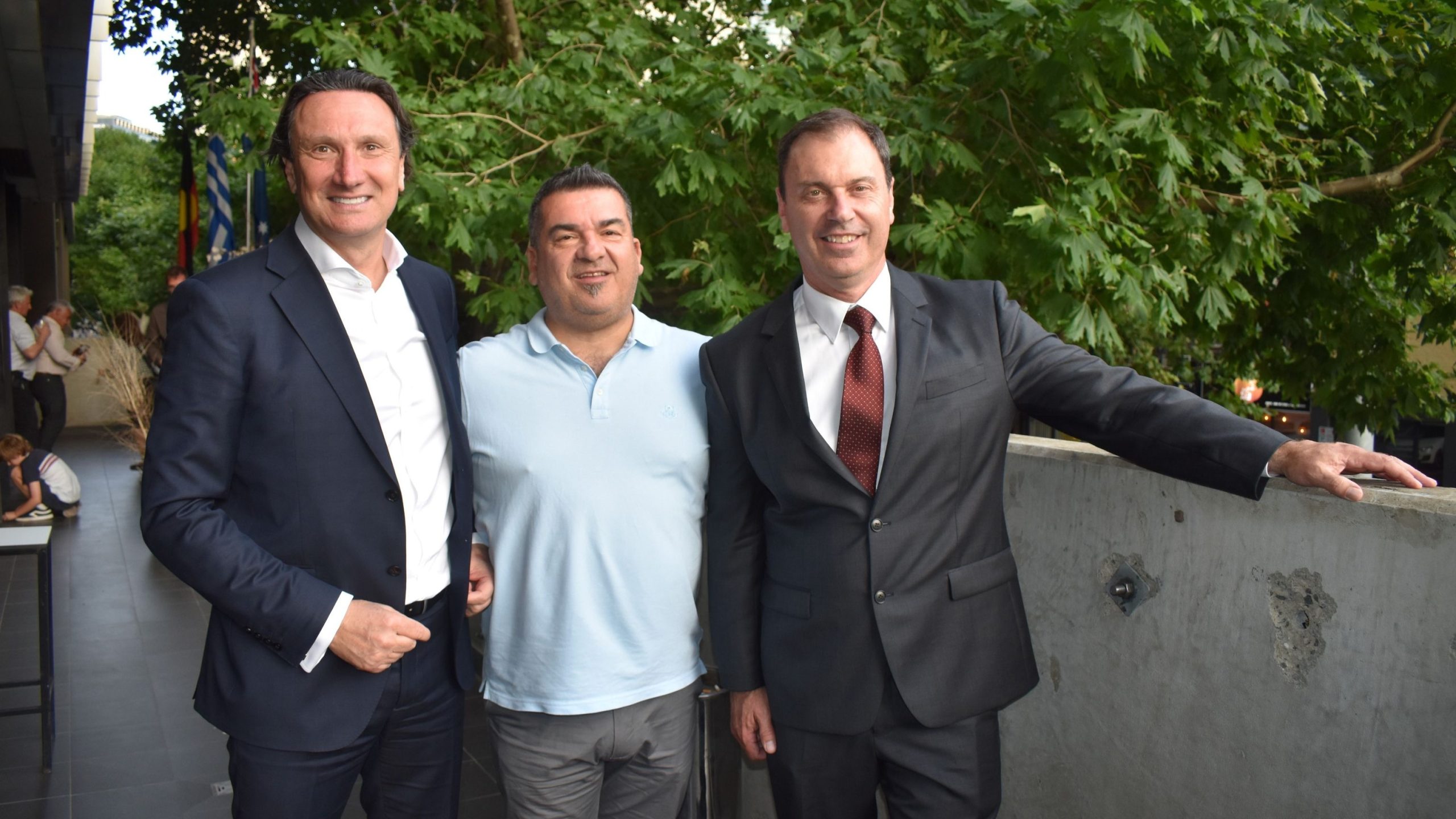Photos and words by Mary Sinanidis.
Colin Brooks, the newly appointed Victorian Minister for Multicultural Affairs, grew up in Five Dock, a multicultural suburb in Sydney’s inner west. Though surrounded by different languages, he only speaks English, “unfortunately”, he said, because “languages are important”.
Mr Brooks told The Greek Herald he chose to visit the Greek Centre of Melbourne to give awards to Greek Australian high VCE achievers as one of his first ministerial visits – to encourage more people to speak Greek.
He led by example with a few well-executed Greek words – “kalispera”, “kala Christougenna” – taught to him by Nick Staikos MP earlier in the day. In four years, he hopes to hold an entire conversation in Greek, he half joked.
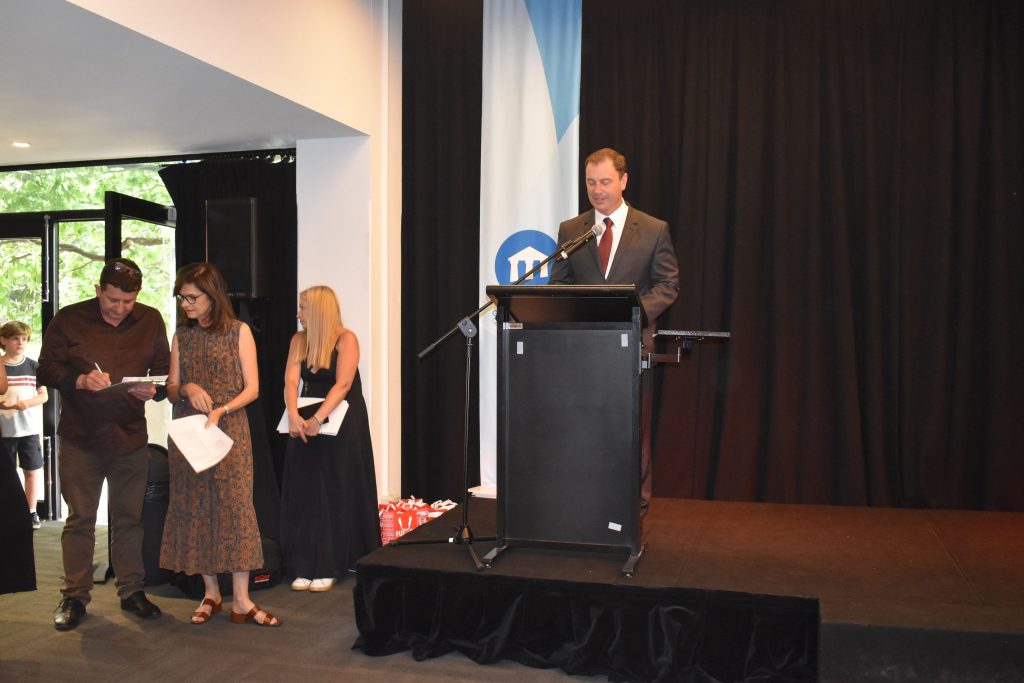
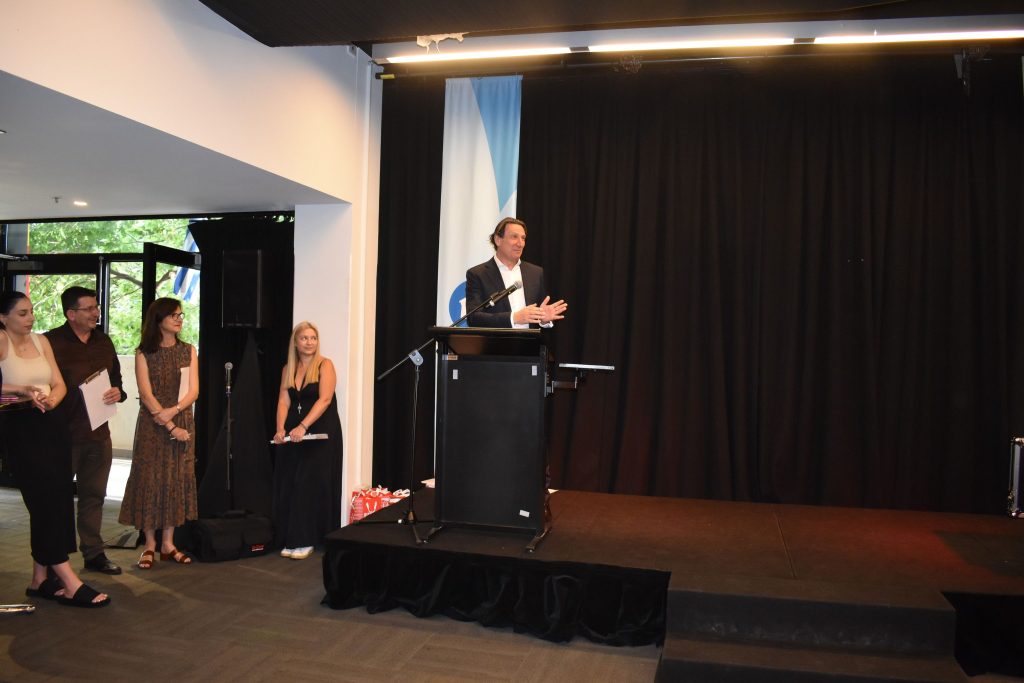
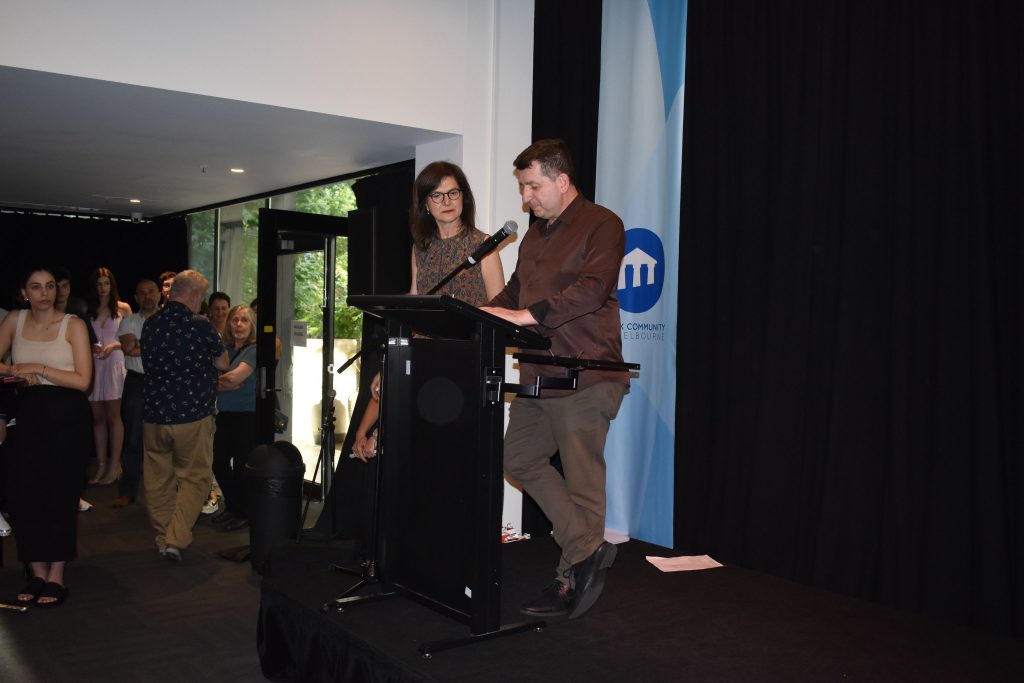
“I think the study of languages, and particularly keeping culture alive and the language alive for communities like the Greek community is so important,” he told The Greek Herald, adding that, in his role, he’ll continue to support community language schools and also offer Victorian Multicultural Grants.
“We will also look at more ways we can support the community financially, but I can’t make commitments tonight.”
He described Victoria’s Multicultural Commission (VMC) as a “conduit” and pledged he would listen to their advice. In fact, VMC Commissioner Bill Papastergiadis was the one who invited him to meet with the Greek Australian students, the future of our community, an invitation the newly appointed Minister of Multicultural Affairs gladly accepted.
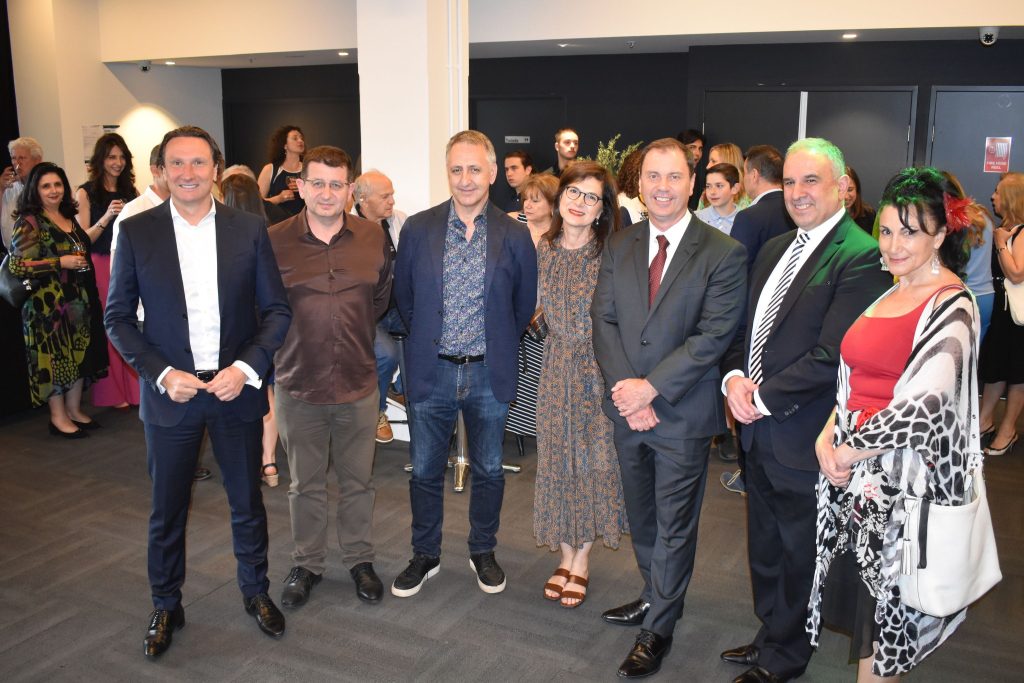
“I’m not the Minister of Education but, in my role as Minister for Multicultural Affairs, I have a strong interest in making sure that language education thrives and flourishes in Victoria and that teachers are recognised for the roles they have,” he said.
As State Member of Bundoora, he is well positioned to influence the future of Greek language learning at La Trobe University.
“I am aware of the struggle. And the struggle is ongoing, isn’t it? I’ve got a strong relationship with La Trobe and I’ll be putting it to good use,” he said
“But I’ll also keep coming to events like this to encourage people.”
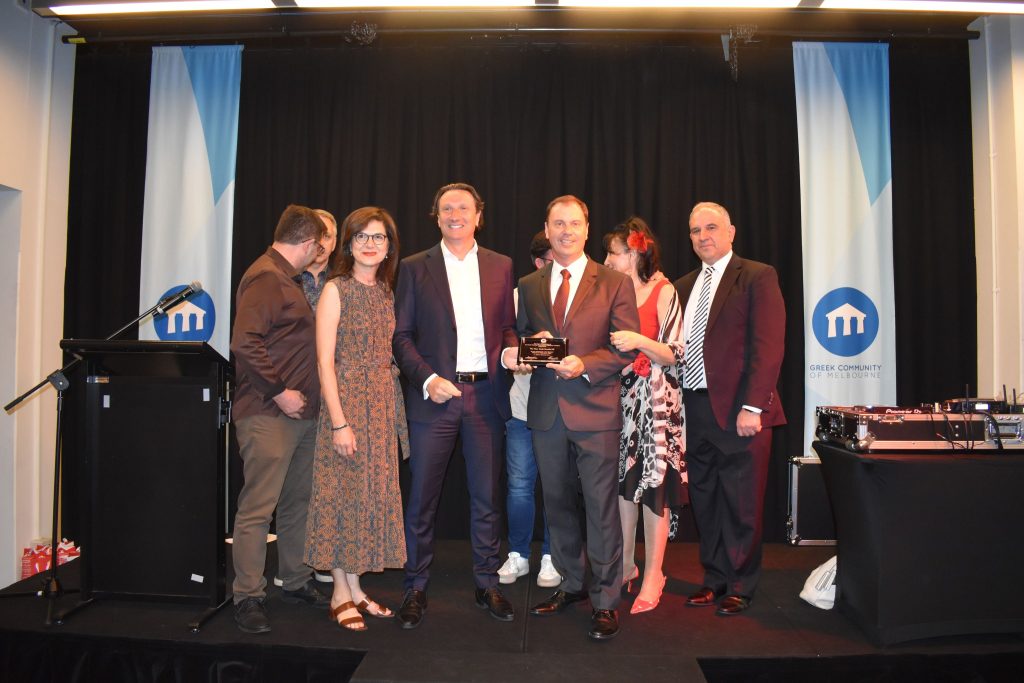
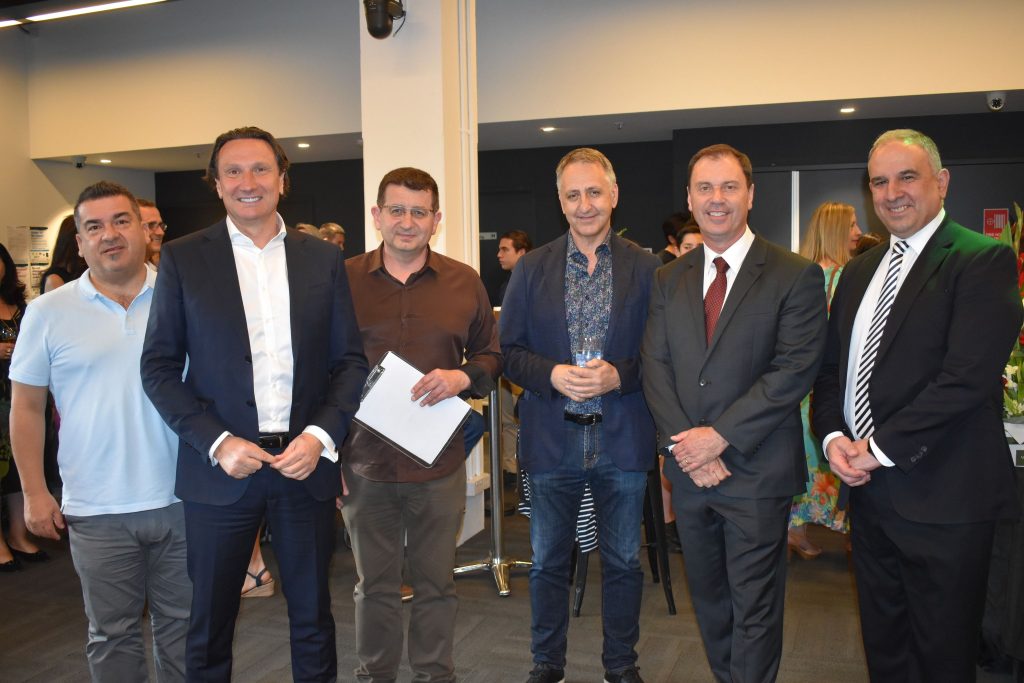
Asked about his own relationship with Greeks, he said: “I went to school in Ashfield which was very multicultural but it’s when you come to Melbourne that you are immersed in Greek culture. Through my working life I’ve come into contact with Greek people, and you feel at Greek events that you are part of the family. They are very welcoming.”
He soaked in the view, while Victorian politician John Pandazopoulos pointed out some of the architectural details of the Greek Centre, and his Greek Australian staffer Katerina stood by – “he has to leave soon”, she said, but he seemed content to linger on, take a few photos with the kids, and engage with the parents.
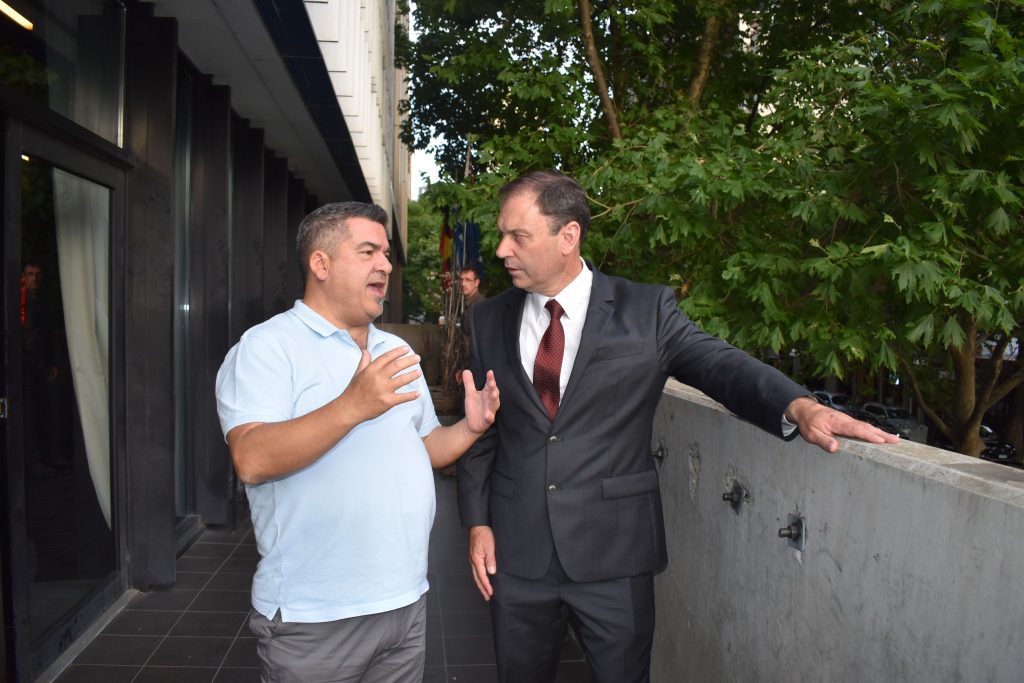
“We know that as a state, as a society we are richer because of our diversity and Greek Australians have contributed, not just with their delicious food and great music but their values of democracy, philosophy and sense of community. It’s contributions such as these that have allowed our state to prosper,” Mr Brooks said.
Greeks have done well in Victoria, but there’s a battle to keep language alive as each year the numbers of students drop a little.
“I have been teaching VCE for 10 years,” said Maria Bakalidou, Principal of the Greek Orthodox Community Schools of Melbourne and Victoria. “With Manos Tzimbragos (the former principal), we tried to invest in education and resources, and we are seeing greater success and steady results. Apart from getting students with marks over 40 we also have an average of 35 which later is scaled upwards.”
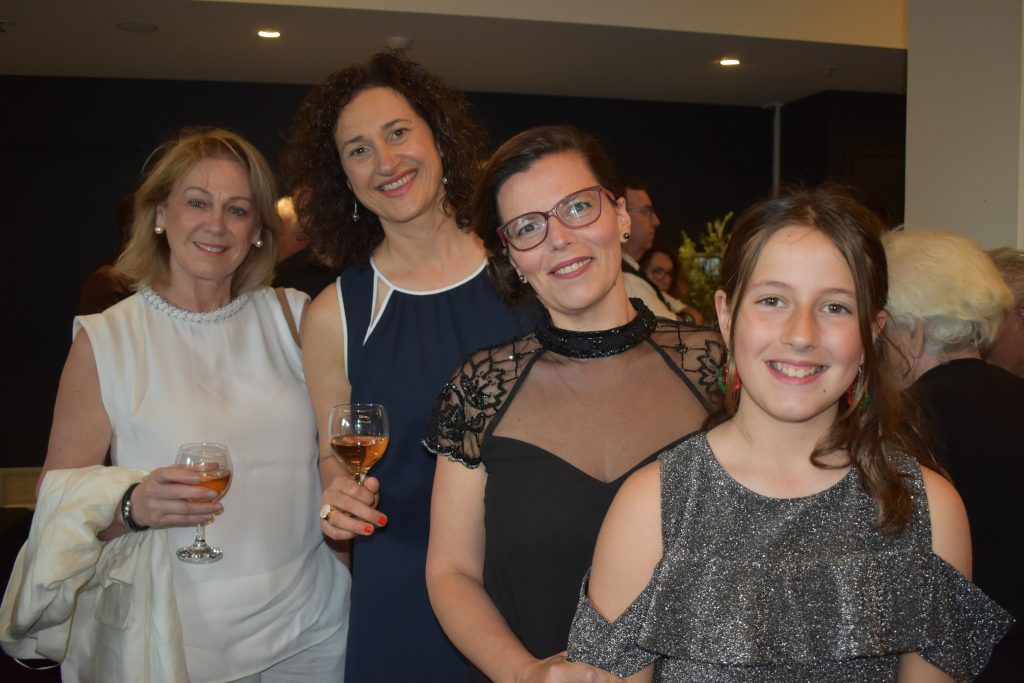
Her colleague Christina Soumi adds, “We are also trying to build strong foundations.”
Programs such as ELA, Greek story time and the Greek Community’s efforts to create books catering to the needs of young Greek Australians are helping somewhat. Nonetheless, the VCE numbers decrease each year.
Nick Dallas, who heads the GCM’s Education Committee, said, “The fact that we have students who are third fourth and fifth generation and continue to do Greek at such a high level is admirable. They are our future language ambassadors.”
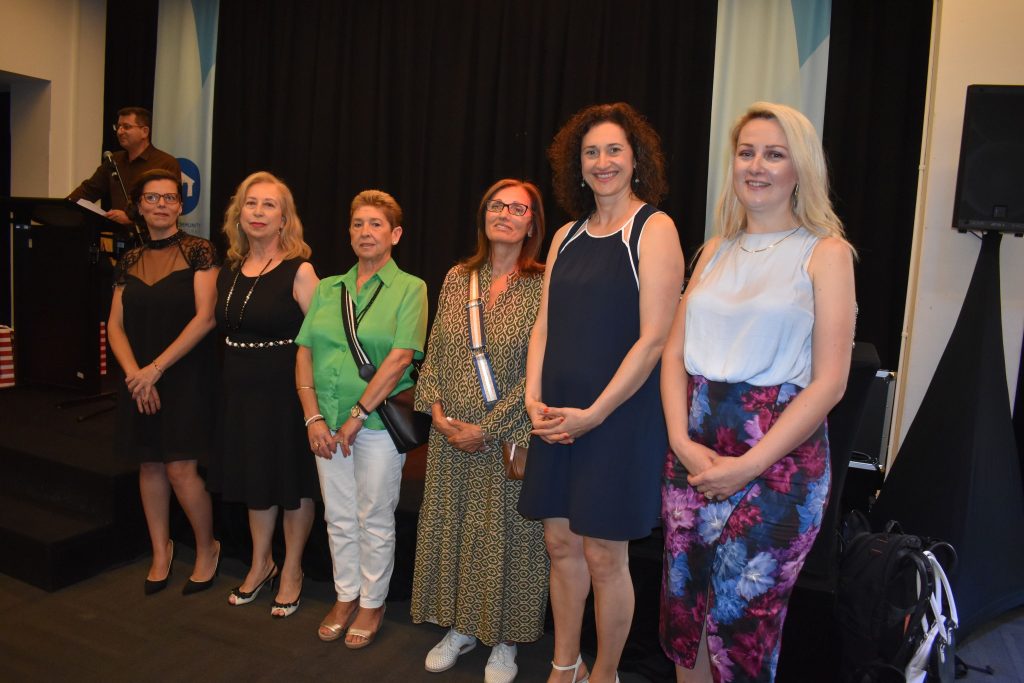
Students have their say:
Kyriakos Perisanidis, Athan Vass and Ross Iliakopoulos all went to PEGS and all achieved ATARs in the very high 90s. None of them studied Greek for the VCE, though Kyriakos said he wants to study Greek History at a tertiary level.
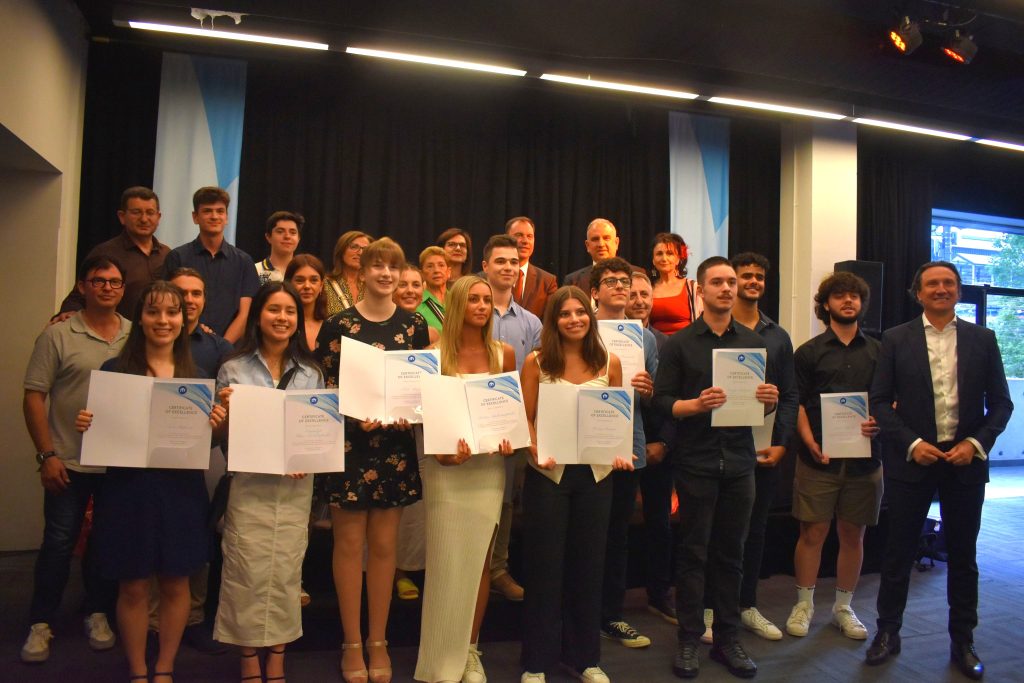
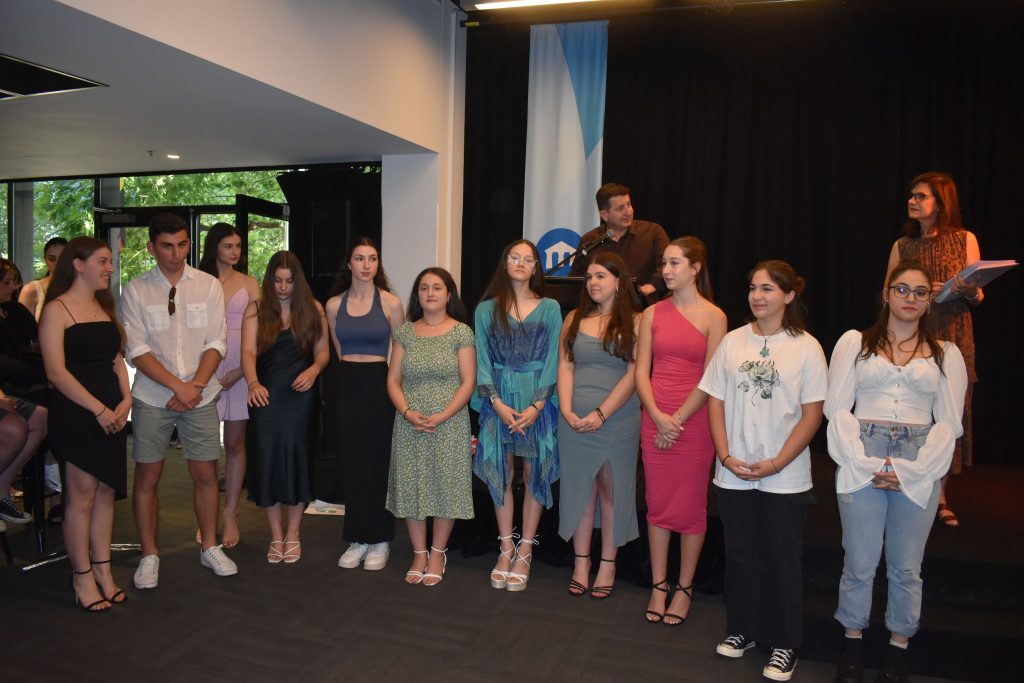
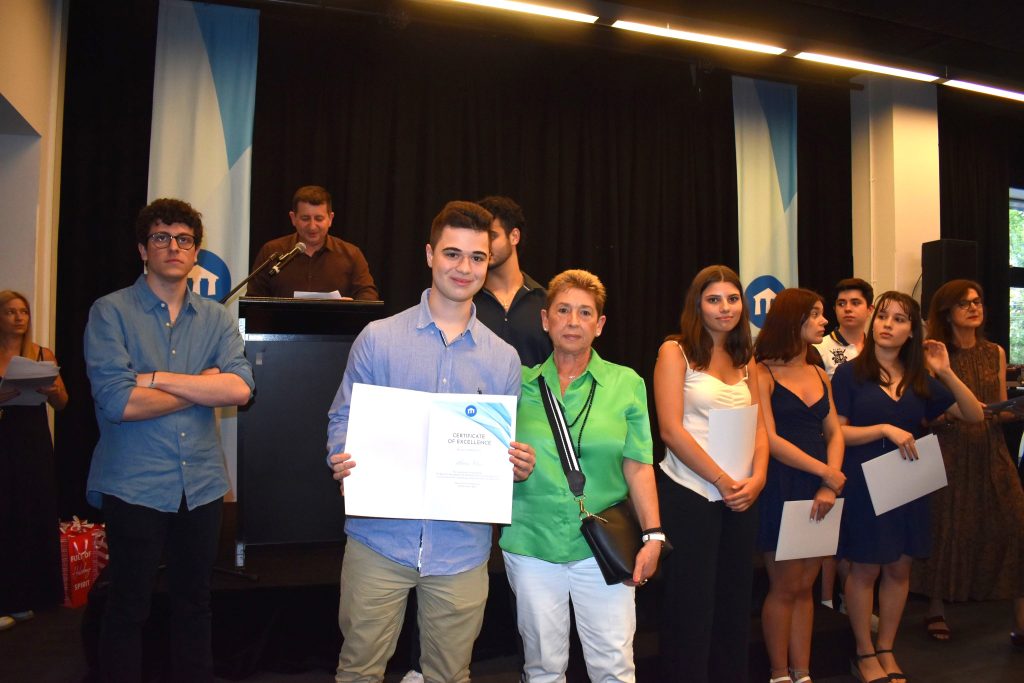
“There’s lots of Greek at my place!” Athan said, adding that his grandparents lead the way.
Kyriakos said, “Pappou and giagia had a focus on education and are very proud of me.”
For Ross, there was plenty of joy at being able to celebrate his high ATAR surrounded by other Greeks.
Though Athan’s parents were “chill”, Ross said that Greek parents “are very tough on you at times but they’re pushing you to be the best you can be.”
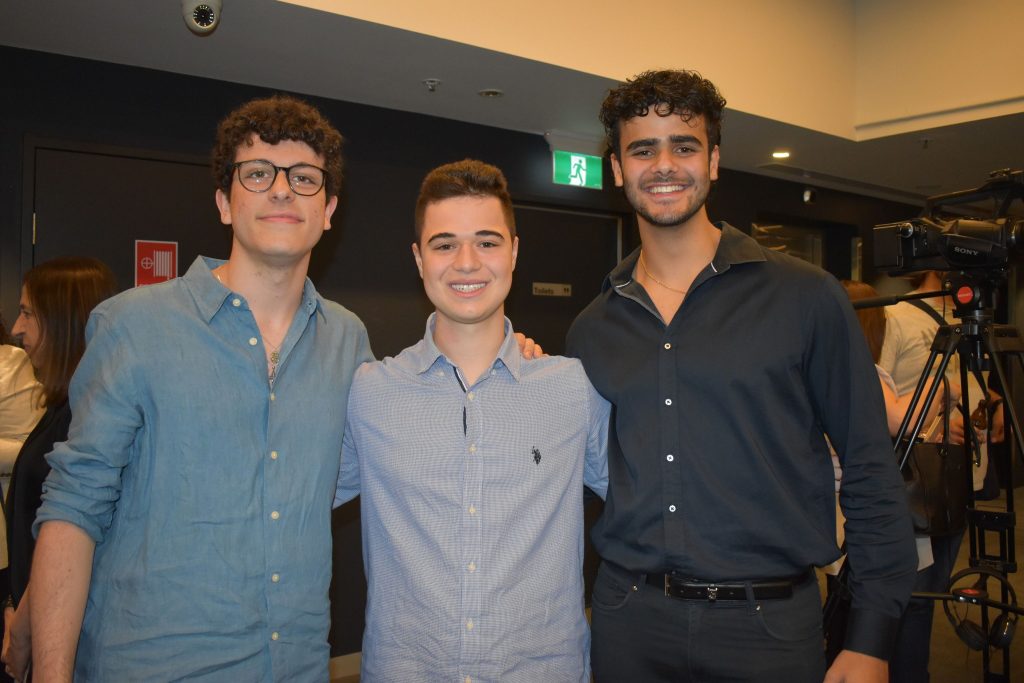
Tara Metaxas achieved a high mark in Advanced Biology though she is still in Year 11. She felt inspired by her giagia and pappou, who were present at the ceremony, and this motivated her. “I think it is really good that they immigrated to Australia, and it is great to use the resources I’m given in Australia to make them proud,” she said.
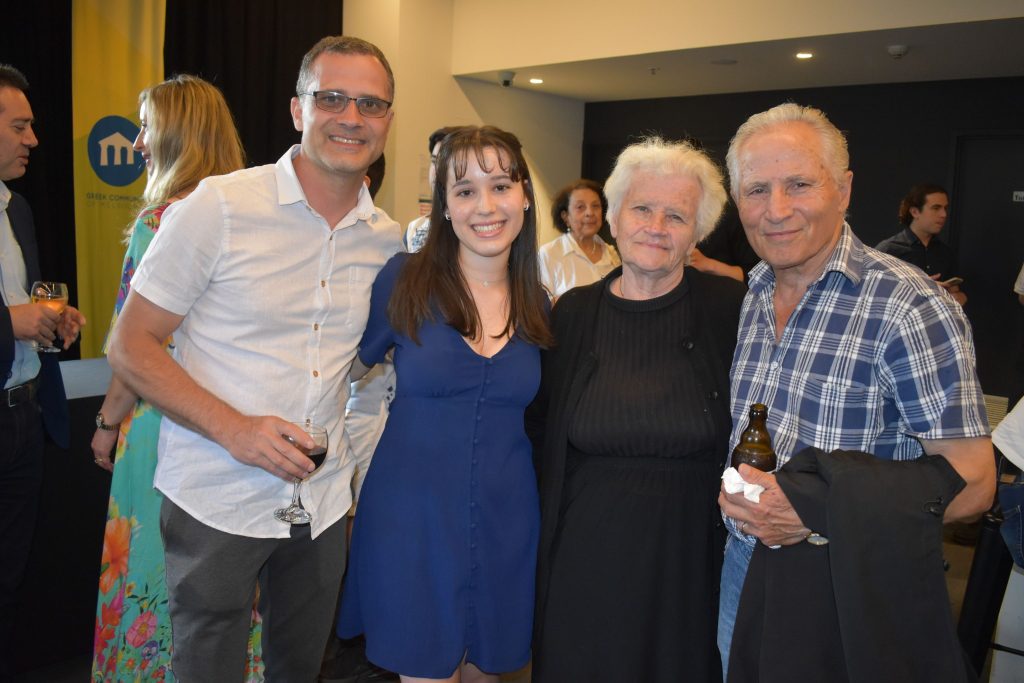
Aristea Andrianopoulos, a future lawyer, said, “Trust me, it’s not easy going through year 12 with a Greek mum” and added that “it is up more up to the students than the parents”.
Beside her, classmate and future lawyer, Penny Samios advises students to remember that “even though it may be hard studying and making sacrifices it is worth it. Remember, it’s only a small part of your life.”

Gabriella Sakkos took a different approach. She felt more focused by having a balance and did not quit her job or her water polo. “Doing this helped keep me more focused when I did study,” she said. Her parents, both teachers, said that she was “self-driven”.
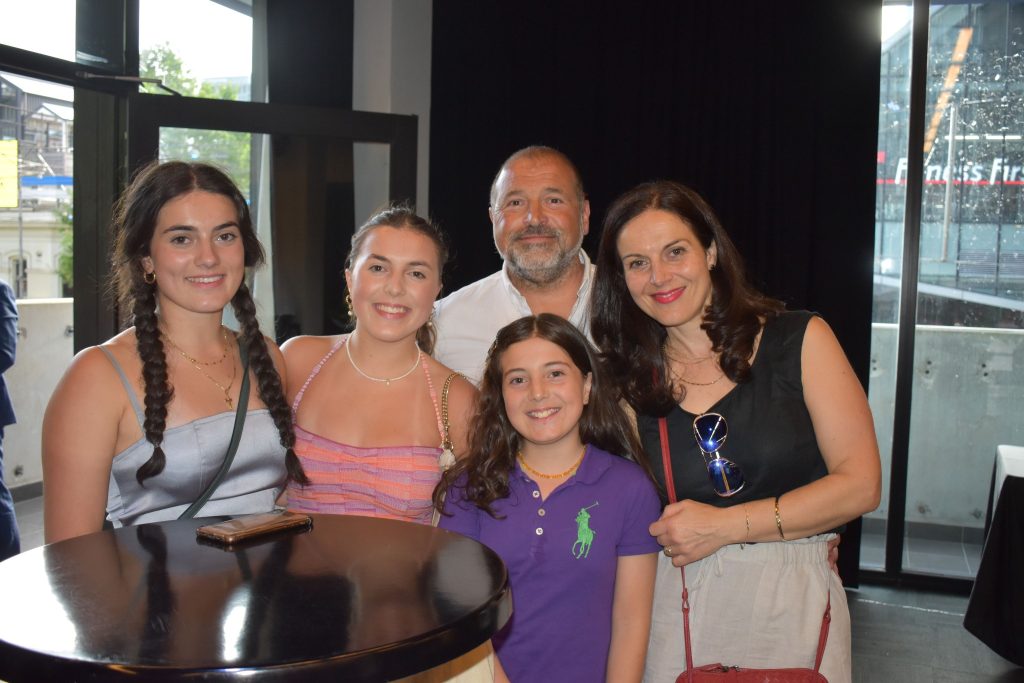
Though she didn’t study Greek, she felt that receiving a Greek Community award for her high ATAR was important. “My yiayia and pappou were so happy that I’d be coming here. Now I know where it is and it’s something for me to be a part of,” she said.

